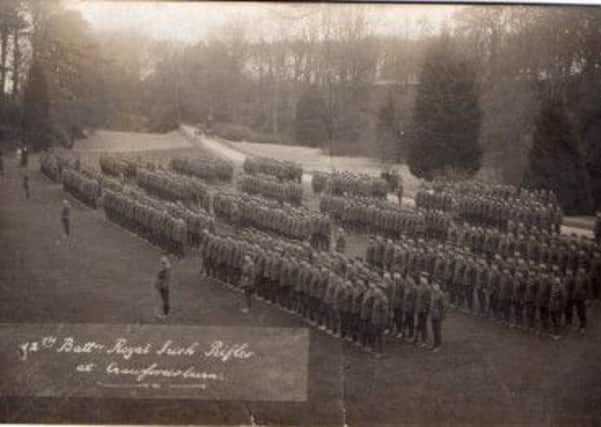Ballymena 1914 - Marching as to war


In my estimation, and after years of research, I would confidently argue that the war of 1914-1918 had a far greater effect on the everyday lives of people in this part of the world. It is entirely correct to point out that no Irish cities were blitzed during what was commonly termed The Great War’ and thus the civilian population never directly witnessed the horrifying destructive power of industrialised warfare. But on a statistical basis, with th,ousands upon thousands more men from these shores enlisting during the 1914-1918 war than in World War II, the impact on local family life was immeasurably greater.
Certainly in the early months of the war it was possible to find whole streets where all the men of military age and physical capability had volunteered for service. The nature of recruiting meant that men who lived, worked and played in the same community could serve together in a complete unit.
Advertisement
Hide AdAdvertisement
Hide AdAnd while this was wonderful for morale and unit cohesion it could mean slaughter on an unheard of scale when the tactics failed and scores, if not hundreds of men were scythed down by enemy machine guns.
Tragically, the tactics of World War One ensured that Ballymena and District endured several such sombre occasions when the columns of the local newspaper, our ancestor publication, the Ballymena Observer, were flled with the names of local men who were killed, wounded or missing.In comparitive terms, there were no such days for our local communities in World War II. Lessons had been learned by the army and ‘pals battalions’ were no longer in the field by the 1939-1945 period. If you want further evidence which supports my claim, simply walk into the Memorial Park and count the fallen for both wars. There is no difference in the nature of the sacrifice but the sheer scale of loss carved in stone on the World War One Column makes its own poignant point.